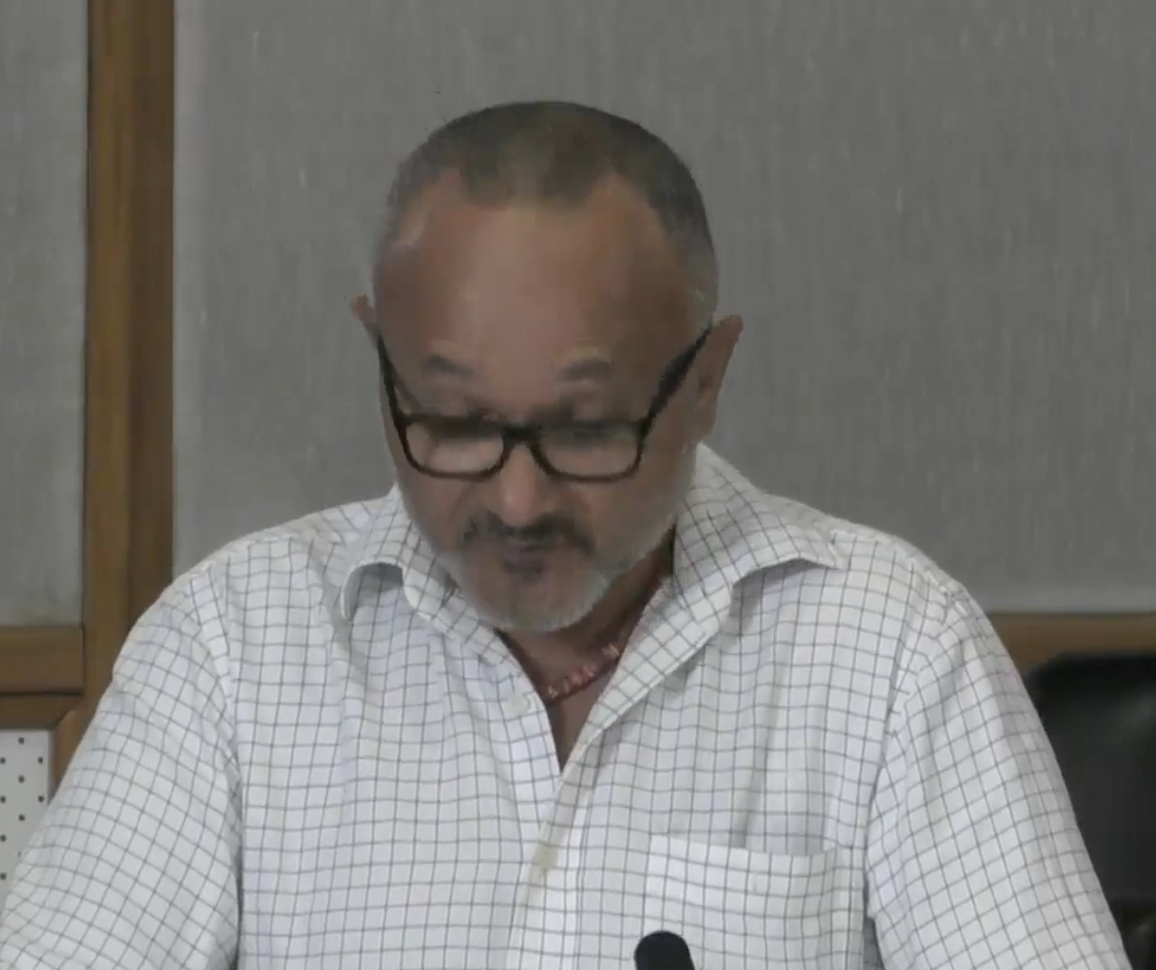
by Ronald Toito’ona
Solomon Islands Parliamentary Opposition Leader, Matthew Wale has delivered a sharp and detailed critique of the Government’s 100-day plan, accusing the Democratic Coalition Government for National Unity and Transformation (GNUT) of repackaging old policies without offering genuine reform or a clear strategic direction.
In his response to the Governor General’s Speech from the Throne, the Leader highlighted the importance of integrity in political communication. Wale questioned whether the Government truly intended to follow through on the 177 policy promises it laid out last year.
These promises were framed around four pillars: national unity, good governance, economic recovery, and human capital development.
“Words must not be said merely for the sake of it. The government must be sincere in what it says,” Wale stated
He went on to note that while the aspirations of the 100-day plan sounded noble on paper, they lacked the depth and originality expected from a newly elected administration.
Wale argued that a credible 100-day program should be concise, focused, and strategic—offering a handful of transformative, low-hanging policy outcomes that clearly reflect a new government’s agenda.
Instead, he said, the GNUT plan was a bloated list of ongoing ministry activities inherited from the previous government, the DCGA.
“About 99% of what was in the GNUT 100-day programme falls into this category – they were inherited from DCGA,” he asserted.
“This makes the 100-day program bereft of new ideas or a strategic vision.”
He warned that including every existing activity in a short-term action plan suggested that the Government viewed all initiatives as equally important, a move he described as evidence of a lack of direction and strategic prioritisation.
Wale also examined the policy distribution within the 100-day plan.
Of the 177 policies:
- 37% were aimed at governance, particularly reforms in public finance and anti-corruption legislation;
- 36% focused on economic growth and productivity;
- 17% targeted human capital development via health, education, and skills training;
- and 10% addressed national unity.

While the distribution may seem balanced on the surface, Wale reminded Parliament that delivery and outcomes were what truly mattered.
“A vision is only as powerful as the Government’s ability to implement it,” he said.
In his analysis, Wale highlighted the sectors covered by the 100-day plan:
- The fundamental sector aimed to strengthen transparency, legislation, and institutional capacity.
- The productive sector focused on infrastructure, exports, and economic reforms.
- The resource sector pledged value addition and innovation in natural resource development.
- The social sector promised improved health and education delivery and stronger public systems.
Yet, despite these wide-ranging goals, Wale contended that the plan failed to reflect a distinct identity or fresh political will from GNUT. Instead, it recycled past efforts and missed the opportunity to outline a bold path forward.
Last year, In-depth Solomons asked the Prime Minister, at two separate press conferences, about progress on the 100-day policy, but he said he was still awaiting a briefing paper from his Policy Unit.
It is unclear if the paper is ready and the PM was already informed.
